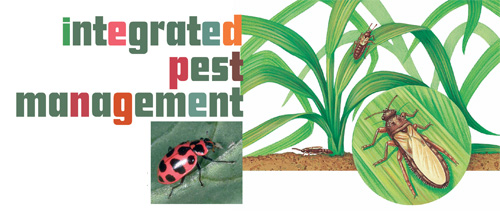

Understanding the Terminology Involved in Integrative Pest Management
Integrative Pest Management (IPM) is an effective and environmentally sensitive approach to pest management that relies on a combination of common-sense practices.IPM programs use current, comprehensive information on the life cycles of pests and their interaction with the environment. This information, in combination with available pest control methods, is used to manage pest damage by the most economical means and with the least possible hazard to people, property, and the environment. IPM programs take advantage of all pest management options possible, including, but not limited to, the judicious use of pesticides.
Pests are populations of living organisms that interfere with the use of school facilities for human purposes. Strategies for managing pest populations will be influenced by the pest species and whether that species poses a threat to people, poverty, or the environment.
Integrative Pest Management (IPM) is a strategy that focuses on long-term preventive or suppression of pest populations using a combination of tactics that minimize the effect of control activities on human health and the health of non-target organisms.
Understanding pest needs is essential to implementing IMP effectively. Pests seek habitats that provide basic needs such as air, moisture, food, and shelter. Pest populations can be prevented or controlled by creating inhospitable environments, by removing some of the basic elements pests need to survive, or by simply blocking their access to buildings. Pests also may be managed by other methods such as traps, vacuums, or pesticides.
Lancaster ISD Integrative Pest Management (IPM) Policy
Lancaster Independent School District is committed to providing a safe, healthy, and supportive learning environment for all students, staff, and visitors. To help achieve this, the district has developed an Integrative Pest Management (IPM) Policy, which defines how pest management issues will be addressed across all district facilities. While this policy focuses specifically on pest management, the district’s Safety Policy Statement also applies when handling these matters.
Legal Compliance
In accordance with Texas law (Title 22, Texas Administrative Code 595.11b), all school districts must approve and maintain an official IPM policy statement. This policy must be kept on file with the superintendent and the district’s IPM coordinator(s). Lancaster ISD’s policy outlines the district’s goals, as well as expectations for staff and contractors, in order to ensure safe and effective pest management practices.
Guiding Principles of Lancaster ISD’s IPM Policy
Our approach to pest management is grounded in the widely accepted principles of integrated pest management, which include:
Safe, balanced strategies that combine the most effective pest control methods while protecting human health and the environment.
Accurate identification of pest problems before action is taken.
Ongoing monitoring to determine when pests are present and whether their impact requires corrective measures.
Non-chemical solutions first, whenever practical and effective.
Least-toxic chemical controls are used only when necessary and appropriate.
Commitment to Safety
The Lancaster ISD Board of Trustees has formally adopted this IPM Policy, alongside the district’s Safety Policy Statement. Together, these policies reflect our commitment to maintaining safe, clean, and healthy facilities where students can learn and thrive.
Service Center
Address:
1003 North Dallas Avenue
Lancaster, Texas 75146
Phone: (972) 218-1485
Fax: (972) 218-3042
Hours: Monday - Friday 7:00 a.m. to 4:00 p.m.
